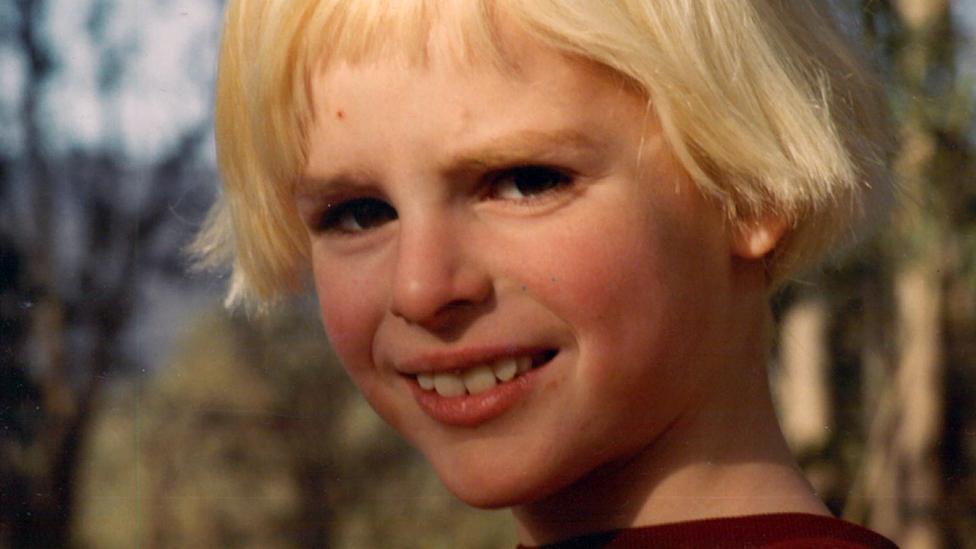Sergei Torop: Russian religious sect leader arrested over allegations of harm
- Published
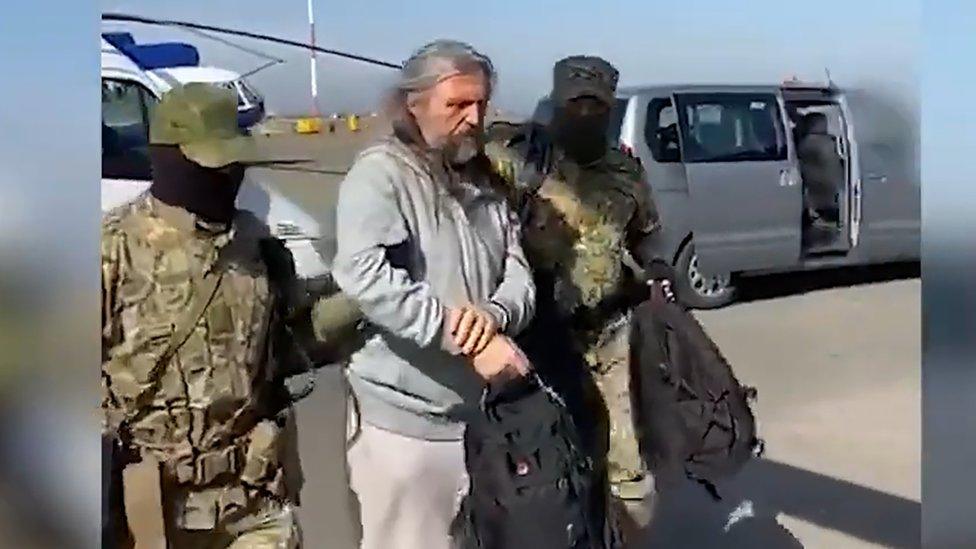
Sergei Torop, known to his followers as Vissarion, was arrested on Tuesday
The leader of a prominent religious sect has been arrested in a remote part of Siberia by the Russian security forces, police say.
Sergei Torop, who is known to his followers as Vissarion, founded the Church of the Last Testament in Siberia's Krasnoyarsk region in 1991.
He was arrested along with two other leaders of the group.
They stand accused of extorting money and causing physical and psychological harm to their followers.
Mr Torop, Vadim Redkin and Vladimir Vedernikov are suspected of "establishing a religious association whose activities involve violence against individuals and of inflicting grievous bodily harm to two or more people," a spokeswoman for Russia's Investigations Committee said.
"They used the money of [their followers] and also used psychological violence against them," she is quoted as saying by state media.
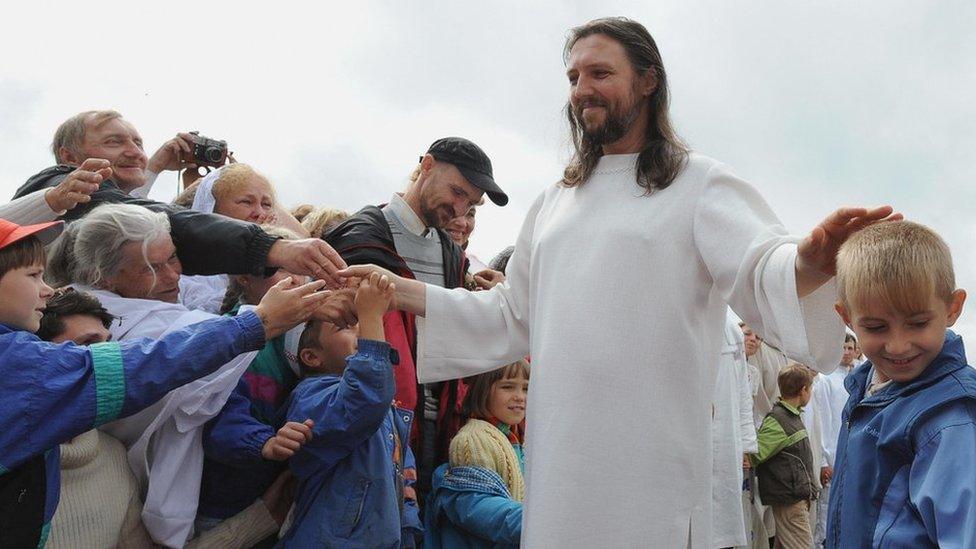
Mr Torop, pictured in 2009, has attracted thousands of followers
Mr Torop, a 59-year-old former traffic policeman, has reportedly attracted thousands of followers since founding the religious group shortly after the break-up of the Soviet Union. Some are said to believe he is the reincarnation of Christ.
He was detained by security forces following a special operation on Tuesday, and video on Russian TV showed men in camouflage fatigues leading two men onto a helicopter.
One local resident wrote on Facebook that four helicopters and dozens of masked men had arrived in the area before they began to search nearby homes and buildings.
Followers of the Church of the Last Testament founded a settlement, known as the City of the Sun, in the Kuraga region of Siberia in 1995. Several hundred members live in other settlements in the region.
In 2000, the Russian ministry of justice said the sect had amassed 10,000 followers around the world.
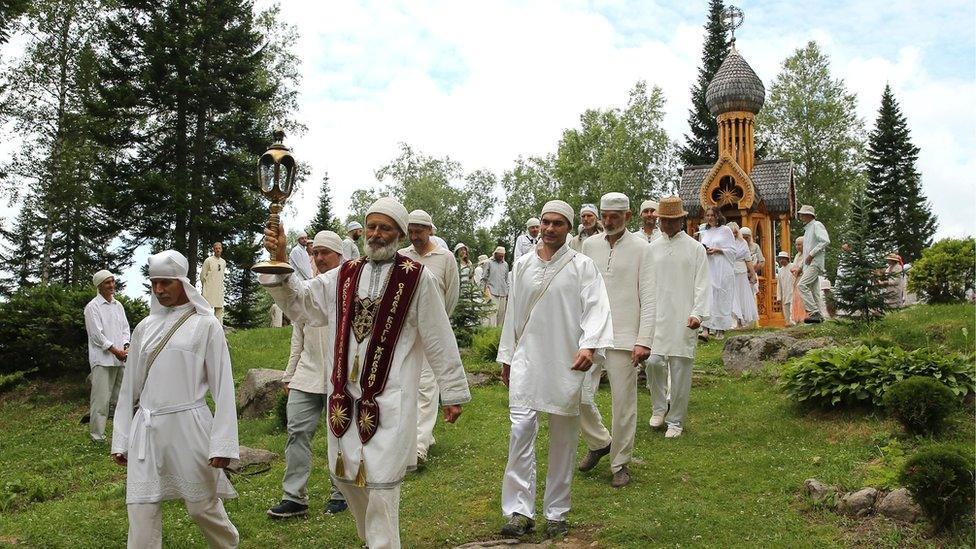
The religious group has several settlements around Siberia
Its followers must not smoke, drink or exchange money, and should live a basic subsistence. Believers in the teachings of Mr Torop should also not consume meat, coffee, tea, sugar, yeast bread and wheat products, BBC Russian reports.
The group combines elements of the Russian Orthodox Church with themes of reincarnation, as well as preparations for the impending apocalypse, the New Yorker magazine reported., external
- Published14 April 2019
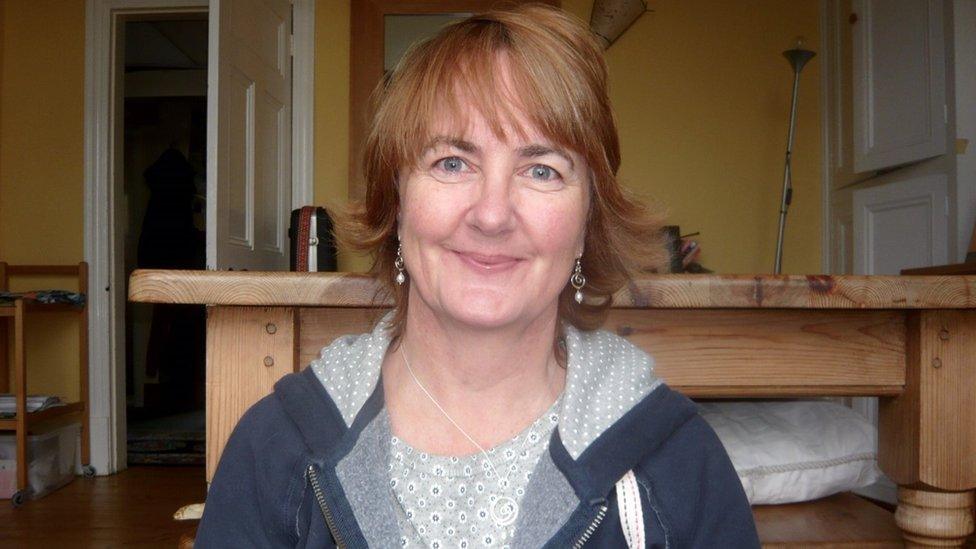
- Published20 August 2019
